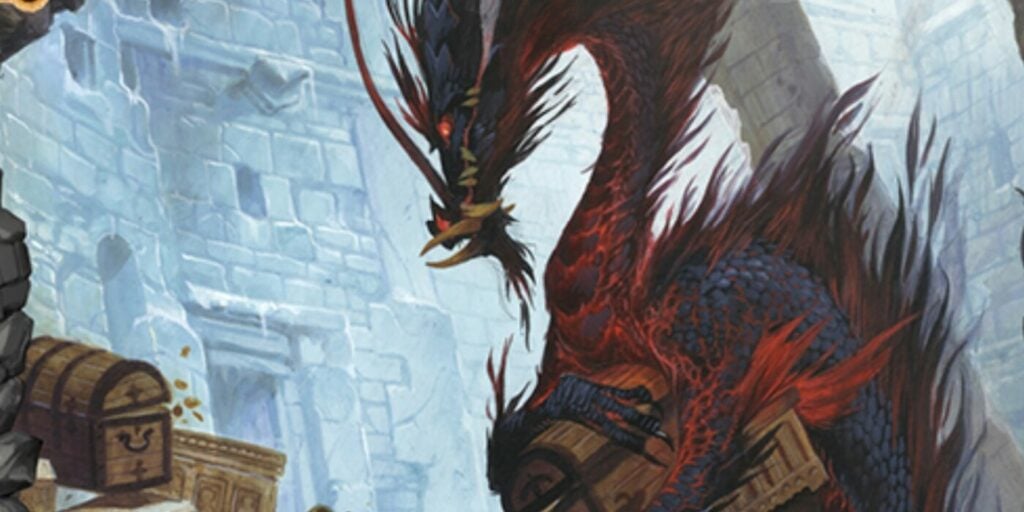Pathfinder Guide – How to Play a Cleric
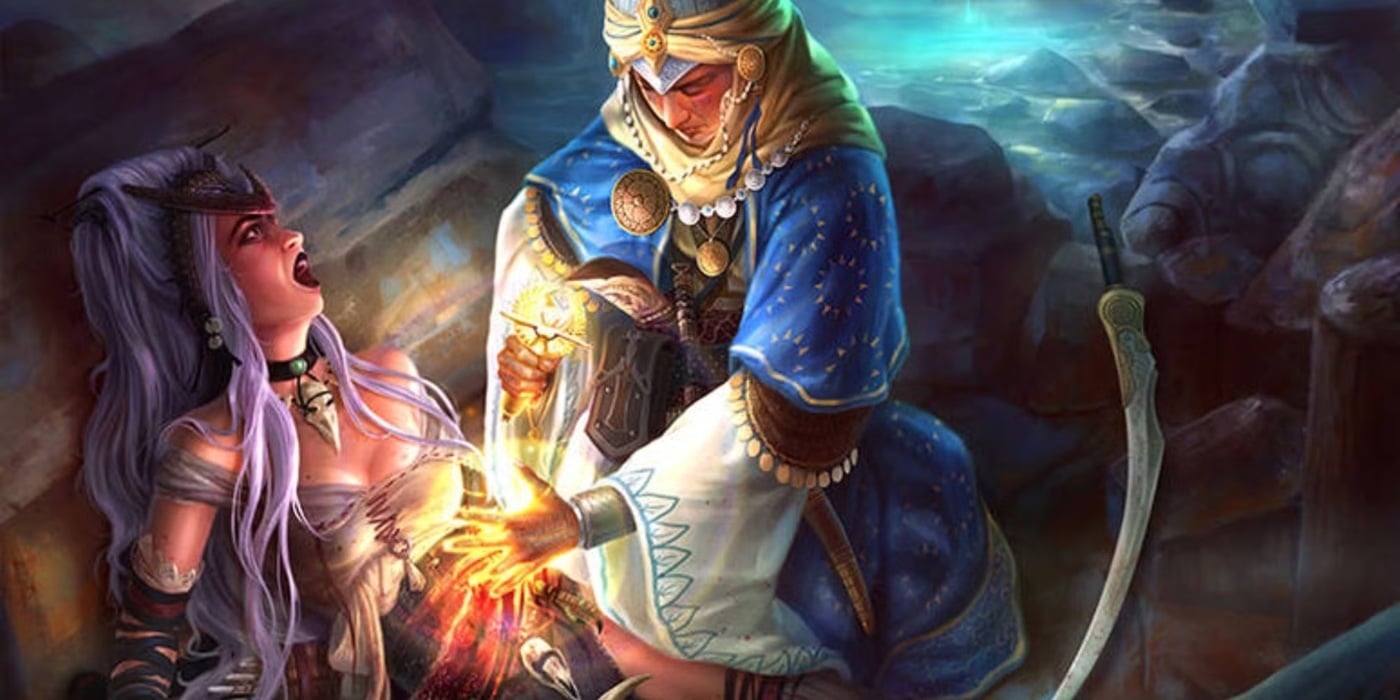
Fighting through the heart of the battle and making the party healthy again is all in a day’s work for a Pathfinder Cleric.
Clerics are the faithful and devout members of the party. They live by a strict set of ideals and are blessed with divine magic for it. Sometimes they’ll use this magic to help, protect, and heal their friends. Others they will harness the might of their chosen deity to strike a powerful blow against an enemy or two. Pathfinder Clerics may look like the party’s goody-two-shoes, but they’re definitely not someone to mess with. And more importantly, you shouldn’t try to mess with their friends or deities.
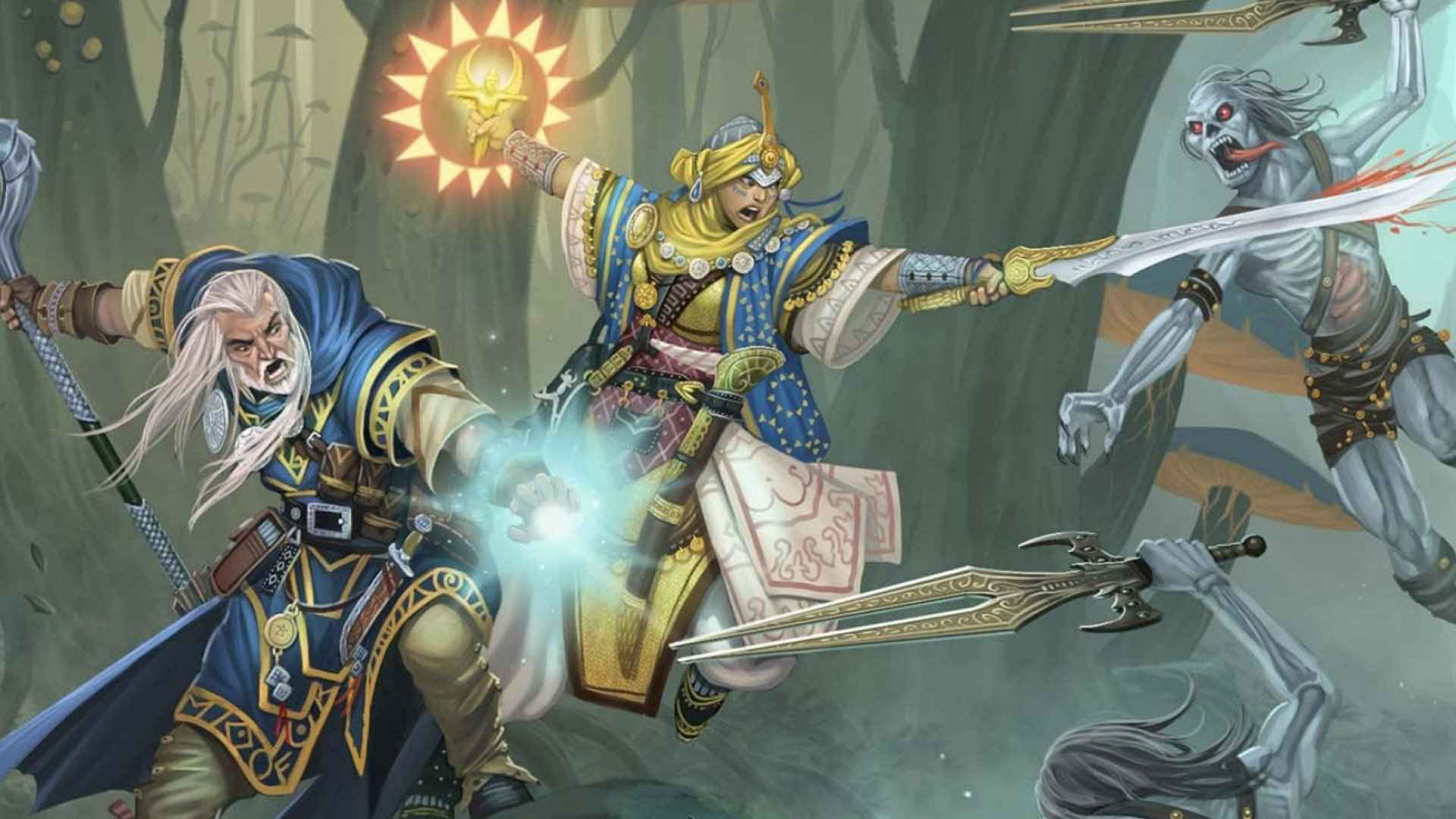
The Pathfinder Cleric Basics
Clerics are a Wisdom based class, taking an immediate boost to the attribute at character creation. Their focus in battle will be balanced between spells and physical attacks. And of course, knowing when and how to best utilize each of these skills. Out of battle, a Cleric will try to use diplomacy and speeches to sway influence, pick out liars, and generally sway others to their way of thinking… and maybe their gods as well.
They have unshakable wills and an expert level of training in the will saving throw. They are also trained in Perception, Fortitude, Reflex, Unarmored Defense, and, of course, Religion. A cleric has other skills and several weapons available to them, but these are all often determined by the deity or doctrine they choose to follow.
Deities
At level one, every Cleric must choose a deity. And there are many deities in Pathfinder. In the Player Core lists the twenty of the most common Pathfinder gods. So if you’re planning to take your next adventure with a Cleric, it’s worth it to start thinking about who they’ll worship early.
For example, Desna is a goddess known for placing stars in the heavens to help guide travelers. Her areas of concern are dreams, luck, stars, and travelers. The divine attributes she governs are Charisma and Dexterity, and the Divine Skill she gives her followers is Acrobatics. Her cleric spells are Sleep, Translocate, and Dreaming Potential and her divine font is heal.

Meanwhile, Rovagug is the imprisoned god of destruction, disaster, and wrath. His spells are Breath Fire, Enlarge, and Disintegrate, and his divine font is harm. The divine attributes he is focused on are Strength and Constitution, and his Divine Skill is Athletics.
Additionally, each of the Pathfinder deities has a collection of domains- for example, dreams, luck, moon, and travel, or air, destruction, earth, and zeal. Clerics and other devotees of these gods can gain spells based in these domains. The Air domain allows control over wind and the weather, while the Travel domain allows power over movement and travel.
Doctrines
Even amongst Clerics who follow the same deity, there are different approaches or doctrines the adventurer could follow.
Cloistered Cleric: These are the classic of-the-cloth Clerics. They focus on divine magic and their connection to their god’s domains.
Warpriest Cleric: These are the Clerics who have a more militant focus to their belief, training, and spells.
Battle Creed Cleric: This is a Cleric who’s gone a little beyond the Warpriest. They are focused almost entirely and especially on combat, putting it above all else.
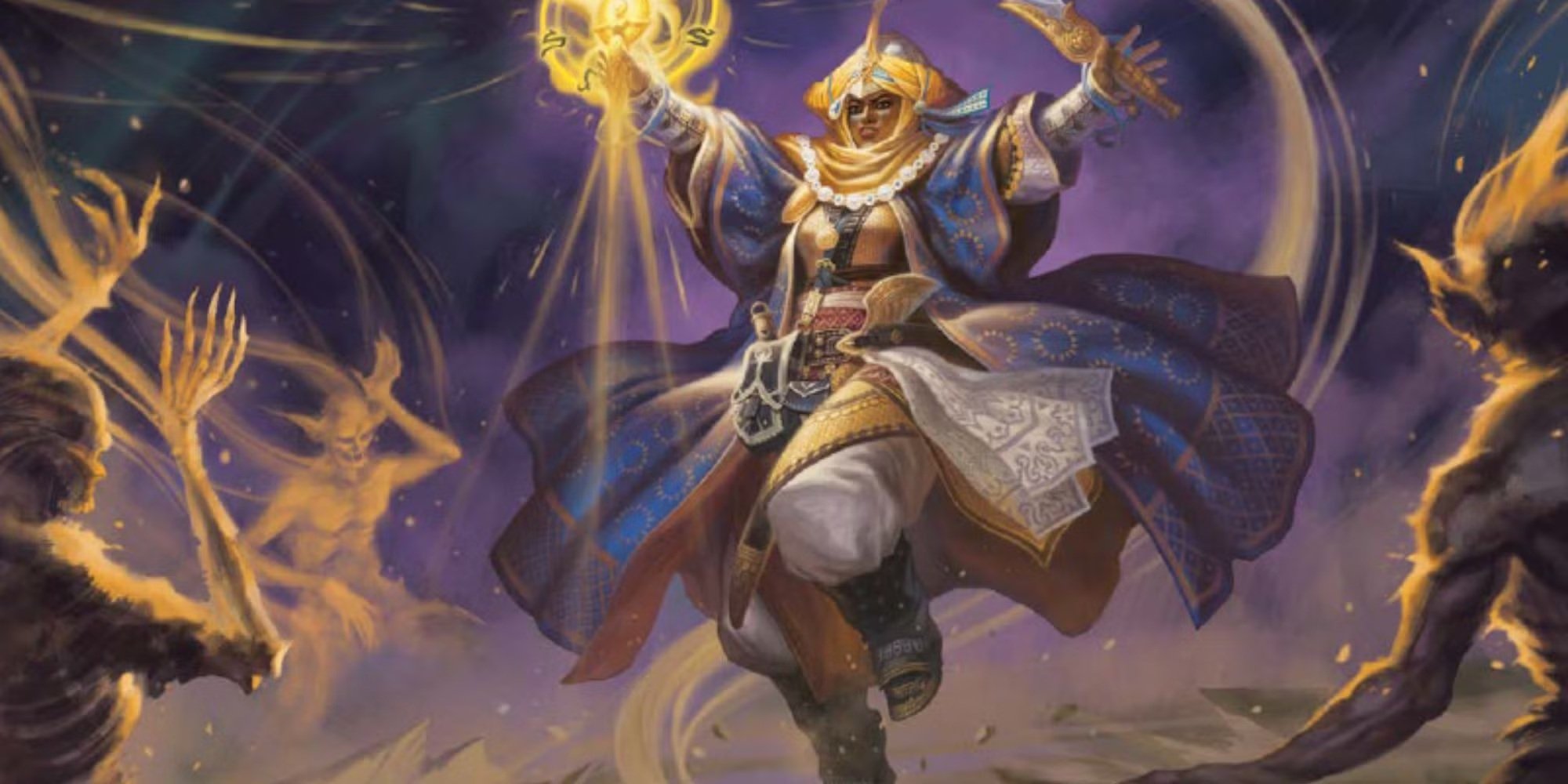
Multiclassing a Pathfinder Cleric
Some adventurers may have a completely different primary focus, but still be a practicing and ordained priest of their chosen deity. Their training may ahve brought them in a different direction, but they still have a calling to their dietic that gives them a few more divine gifts. And that party member may find it most fulfilling to multiclass as a Pathfinder Cleric.
Additional feats that become available through this multiclassing include Cleric Dedication, Basic, Expert, and Master Cleric Spellcasting, Basic and Advanced Dogma, and Divine Breadth.
How to Play a Pathfinder Cleric
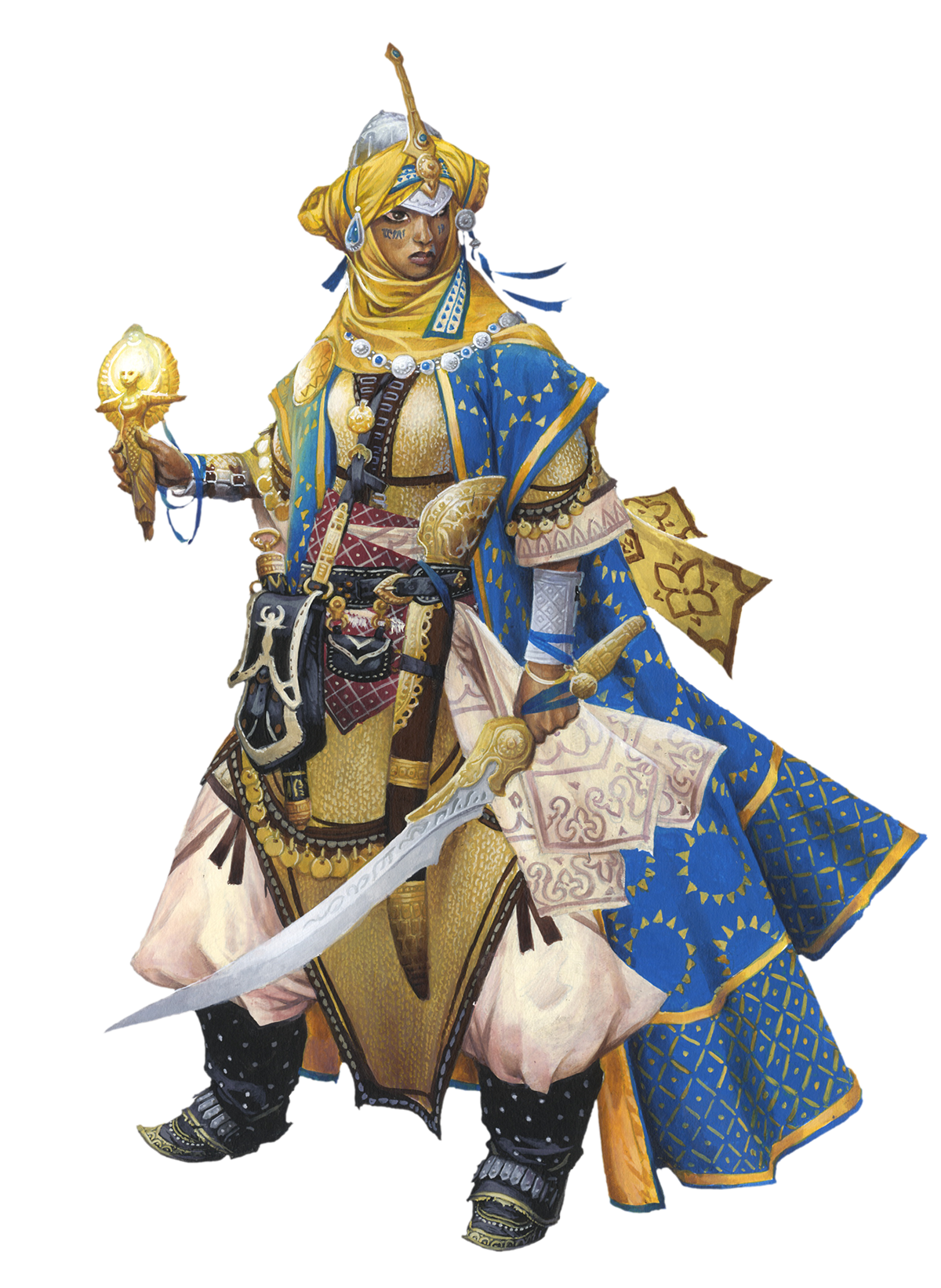
If you want your next character to be a Cleric, you’ll need to figure out early on what sort of person your character is going to be. Some classes can be more forgiving for a figure-it-out-as-I-go sort of player. But the Pathfinder Cleric asks you right away who they are, what they value, and which one of many deities they would choose to represent their entire life.
This also means that a party full of nothing but Clerics would likely have a collection of very different Clerics. It’s easy to make a character who is somewhat specialized and unique.
The Cleric is a good character for the player who wants to do a little bit of everything. Magic? Melee? Support? Healing? Diplomacy? The Cleric does it all, and it’s up to you to figure out which of those you’ll be leaning into most in any given situation.
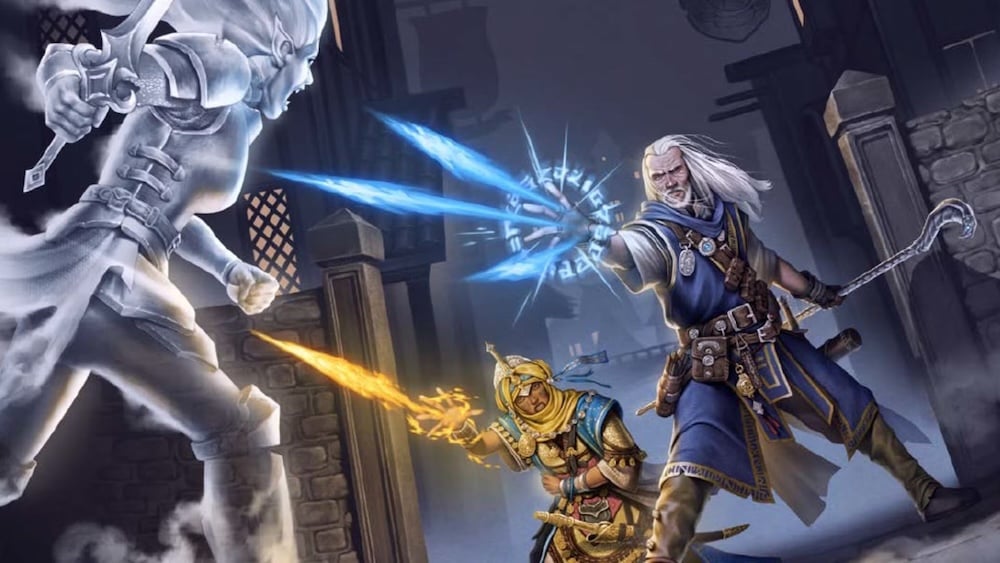
More Than a Healer
A common misconception of the Cleric is that they are just the group’s healer. While it is true that Clerics are one of the classes more focused on healing and support, there is so much more to this class than simply keeping the rest of the group going.
Clerics are often very skilled in the favorite weapon of their deity, and aren’t afraid to wield that weapon on the battlefield. And of course, they use powerful magic (aside from healing) all their own. But for the player who does want their Cleric to help and protect their party, buffs and shields are sometimes more effective in battle, while saving healing for after.
Happy adventuring!






